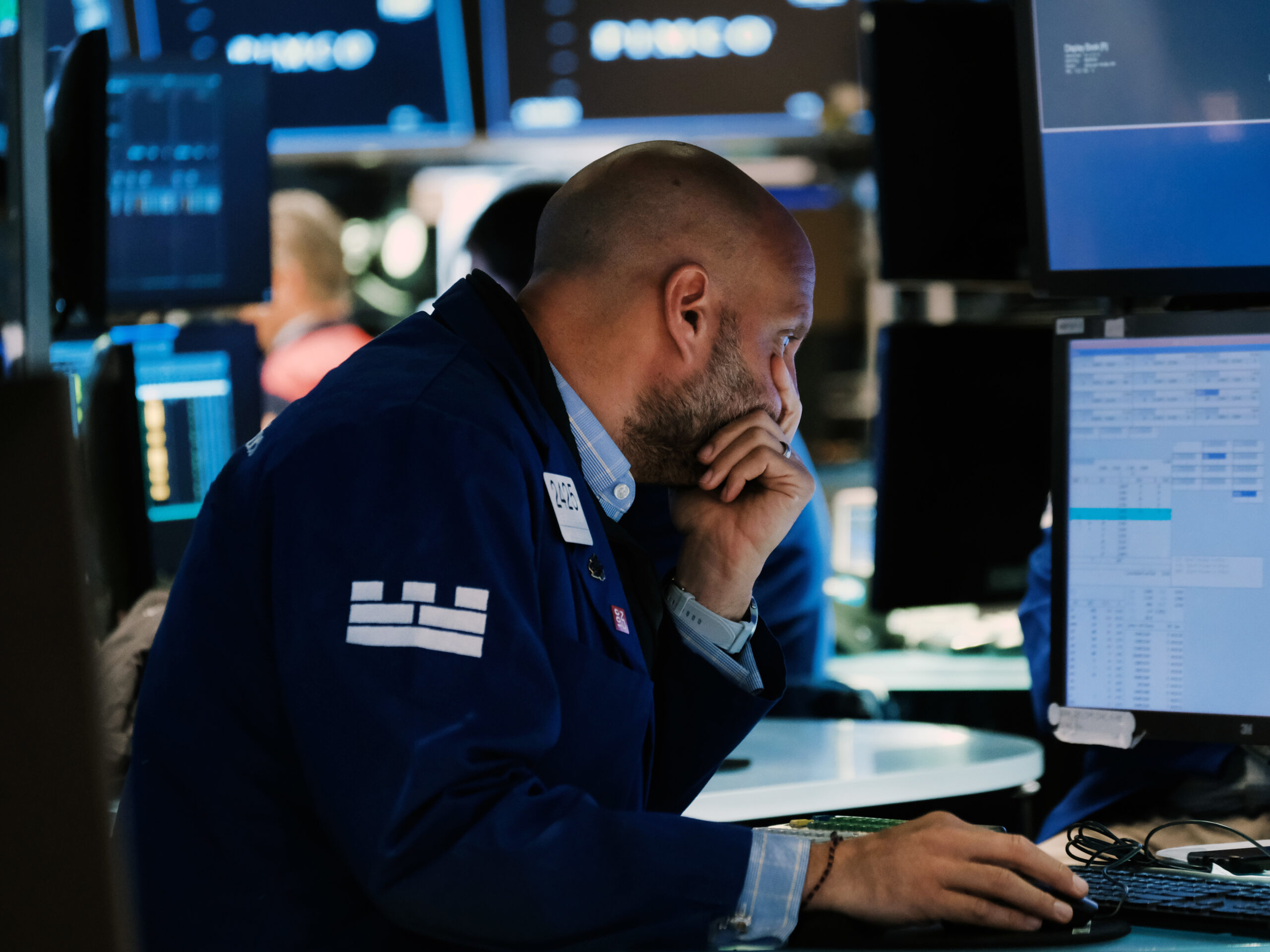Scott Horsley - NPR
Here’s what Trump 2.0 means for the economy, from tariffs to mass deportations
Trump has promised to cut taxes and government regulations, slap tariffs on imports and order large deportations of immigrants.
The U.S. economy is growing solidly. Here’s what’s working — and what’s not.
The U.S. economy grew at an annual rate of 2.8% in the third quarter, led by strong consumer spending.
Why bananas may become one of the first casualties of the dockworkers strike
Hundreds of tons of bananas are stuck in transit — and they won't keep for long.
The Federal Reserve starts cutting interest rates in a big moment for the economy
The Federal Reserve moved aggressively Wednesday to start cutting interest rates as easing inflation fears gives way to concern about the job market.
The Federal Reserve is on the verge of cutting interest rates. Here’s what to know.
The Fed is expected to start cutting interest rates on Wednesday — marking a milestone in the central bank's long-running battle against inflation.
Inflation falls to its lowest level in more than 3 years. Here’s what that means.
Consumer prices in August were up 2.5% from a year ago — the smallest annual increase since February 2021.
As gasoline prices fall, U.S. inflation cools to 3.2%
Gasoline prices tumbled 5% during October, which helped to keep overall inflation — down from 3.7% in September — in check.
4 reasons why your car insurance premium is soaring
The cost of auto insurance jumped more than 19% during the year ending in August, while overall inflation was 3.7%, the Labor Department said.
Despite high inflation, Americans are spending like crazy — and it’s kind of puzzling
Americans began the new year with a spending spree, but businesses are not sure how long it can last.
Inflation is top issue in this week’s midterms
Rising prices are the number one concern for voters in this year's midterm elections, outpacing abortion, crime and other hot-button issues.
Inflation is cooling thanks to gas prices, but many things still cost a lot more
Falling gasoline prices put a dent in the July inflation rate, which fell to 8.5% from 9.1% in June. But other costs such as housing continue to climb, putting a strain on many family budgets.
Gas prices are finally dropping. Here are 4 things to know.
The average price of gasoline nationwide is expected to drop below $4 a gallon in the coming days as prices continue to fall from the record highs hit in June.
No retreat in the summer heat. Inflation blistering at 9.1% in June.
Inflation hit a new, four-decade high of 9.1% last month, fueled in part by record high gasoline prices. Gas prices have since fallen, but overall inflation is still elevated.
The Fed delivers biggest interest rate hike in decades to combat surging inflation
The Federal Reserve raised interest rates by three-quarters of a percentage point Wednesday in an effort to combat stubbornly high inflation. It's the biggest rate increase in 28 years.
How the U.S. got into this baby formula mess
Just a handful of formula makers dominate the industry so a single plant shutdown can lead to empty shelves.
The Federal Reserve raises interest rates by the most in over 20 years to fight inflation
The Federal Reserve raised interest rates by half a percentage point Wednesday, in an effort to cool off demand and lower inflation. Consumer prices have been rising at the fastest pace in 40 years.
How soaring inflation forces stark choices
From rising rent to higher heating bills, surging inflation impacts everybody, but it poses a particular hardship for people with little extra money to spare.
Gas prices surge to above $4 a gallon, near a national record
The prospect that the U.S. and its allies could impose new sanctions on Russian oil pushed energy prices sharply higher. The average price of gasoline in the U.S. hit $4.06 per gallon.
Inflation surges to its highest since 1990
Consumer prices were 6.2% higher in October than a year ago as inflation continues to chip away at the buying power of households across the country.
Millions lose jobless benefits this week. It doesn’t mean they’ll be rushing back to work.
Millions of Americans are losing a lifeline as pandemic unemployment benefits expire. Research suggests the loss of aid won't do much to push people back to work, but may lead to a drop in spending.





















